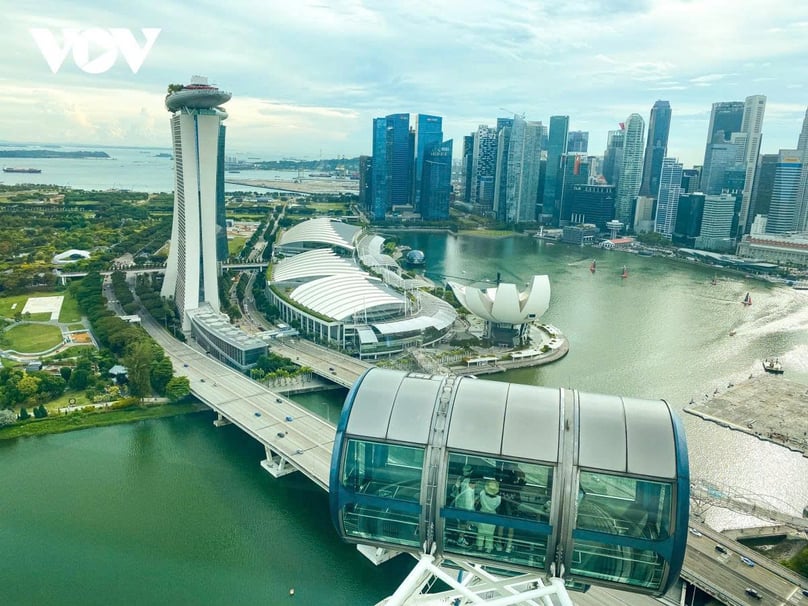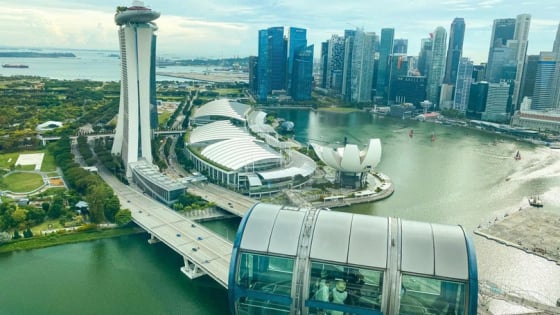By
Vietnam News Agency
Tue, September 23, 2025 | 8:41 pm GMT+7
Singapore aims for economic growth of between 3% and 4% over the decade – a pace comparable with advanced economies such as New Zealand, Sweden, and Switzerland, Deputy Prime Minister Gan Kim Yong told the Parliament on Monday.
 A corner of Singapore. Photo courtesy of the Voice of Vietnam.
A corner of Singapore. Photo courtesy of the Voice of Vietnam.
Gan, who is also Minister for Trade and Industry, said there are opportunities to raise productivity through technology and to grow higher value-added industries such as precision medicine and artificial intelligence (AI).
However, he cautioned that boosting growth will not be easy, given the deteriorating global trade and economic environment as well as challenging domestic trends. He called for a new economic blueprint to steer Singapore forward in a changing world.
Singapore’s workforce is expected to expand by only about 1% a year over the next decade, owing to an ageing population and declining birth rates. Productivity growth is projected at around 1% to 2% during the same period.
Gan acknowledged that periods of global slowdown will inevitably weigh on domestic growth. Still, he highlighted opportunities from AI, robotics, and automation to boost productivity, alongside efforts to develop higher value-added industries.
As companies worldwide diversify their production bases and supply chains in response to global shifts, Singapore could attract new investments and access new markets, he noted.
Technology can also open new frontiers for research and innovation, driving the creation of new products, services, and even industries. Meanwhile, the low-carbon transition is expected to catalyze the growth of the green economy.
The official said that efforts to define a new economic blueprint for Singapore are aimed at strengthening the nation’s position in both existing and emerging growth areas. These include the precision medicine industry, forecast to grow by an average of 11% annually and reach a global market size of $300 billion by 2035. Other promising sectors include AI and deep tech, the green economy, autonomous vehicles, and space.
Singapore will seek to enhance its competitiveness by adopting new technologies and upskilling its workforce. While local workers should be encouraged to gain overseas exposure and experience, Gan stressed that Singapore must also remain open to global talent.

